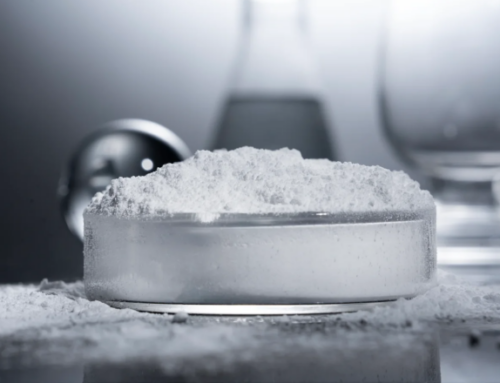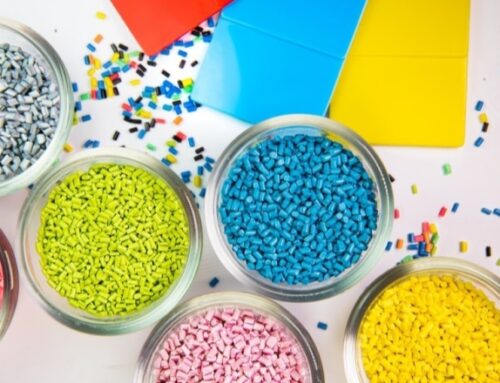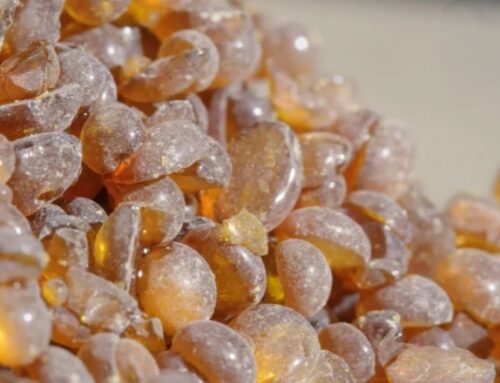English name: Polyvinyl alcohol English abbreviation: PVA
Polyvinyl alcohol (PVA) is a kind of white, stable, non-toxic water-soluble polymer, powder, flake or flocculent solid made from vinyl acetate by polymerization and alcoholysis.
Polyvinyl alcohol contains many alcohol groups, has polarity, and can form hydrogen bonds with water, so it can dissolve in polar water; It is also soluble in hot hydroxy solvents such as glycerol, phenol, etc., and insoluble in methanol, benzene, acetone, gasoline and other general organic solvents.

Physical and chemical properties
1. Physical properties
- Solubility: polyvinyl alcohol powder can be dissolved in water. The polyvinyl alcohol resin (PVA) with an alcoholysis degree of less than 95% can be dissolved in room temperature water, and the polyvinyl alcohol resin (PVA) with an alcoholysis degree of more than 99.5% can only be dissolved in hot water above 95℃.
- Thermal stability: polyvinyl alcohol will soften when heated, there is no significant change below 40℃, glass transition temperature :75~85℃, heating to more than 100℃ slowly discoloration, embrittlement. Above 160℃, long-term heating will gradually color, dehydration etherification, loss of solubility; Above 220℃, decomposition occurs and water, acetic acid, acetaldehyde and butenal are formed. Above 250℃ becomes a polymer containing conjugated double bonds.
- Chemical resistance: PVA is almost unaffected by weak acids, weak alkalis or organic solvents, and oil resistance is very high.
- Storage stability: PVA is a low viscosity polymer, its aqueous solution is very stable at room temperature. The aqueous solution will not deteriorate during storage.
- Film formation: due to the high adhesion between PVA molecules, PVA is easy to form a film, the formed film is colorless and transparent, has good mechanical strength, the surface is smooth and not sticky, and the solubility is good. The molecular film has good light transmittance, high moisture transmittance, no electricity, no dust suction and good printability.
2. Chemical properties
PVA can be regarded as a linear polymer with secondary hydroxyl group. The hydroxyl group in the molecule has high activity and can carry out typical chemical reactions of low alcohols, such as esterification, etherification, acetalization, etc., and can also react with many inorganic compounds or organic compounds.
Packaging, transportation and Storage:
Product appearance: white flocculent, flake, powdery solid. This product is non-dangerous goods, no explosion, no oxidation, no corrosion, no radioactivity, non-toxic and harmful.
1. Packing
- 12.5kg, 20kg, 25kg plastic woven bag or paper bag.
- 750Kg ~ 1000Kg plastic woven ton bag packaging.

2. Transportation
Use clean conveyors to protect against moisture, rain and sun. Handle with care to avoid scratching or breaking the package.
3. Store
In a dry, well-ventilated room, the room temperature is 5-30℃. Keep away from heat, moisture and sun exposure. It is strictly prohibited to store with volatile chemicals to prevent adsorption and deterioration.

Product application
Polyvinyl alcohol resin (PVA) aqueous solution has good film forming and emulsifying properties. It can be used as a protective colloid during emulsification and suspension polymerization of polymers.
PVA can be used in textile slurry, Vinnie fiber, paper coating agent, building material, adhesive, PVA film, PVB raw material, food and medicine, PVA can also be used as soil improver, polymerization suspension agent, emulsifier, quenching agent and so on. In addition, with the continuous development and improvement of PVA performance, its use is constantly expanding.
1. Vinylon raw materials
Vinylon fiber can be produced by polyvinyl alcohol after dissolution, spinning, and then by acetal treatment, which can be blended with cotton, wool, viscose fiber to make vinylon textile, widely used in clothing, cloth, cord, fish net rope. In general, it is better to choose PVA17-99 as the spinning raw material with an average polymerization degree of 1750±50.

2. Warp sizing
- PVA based slurry has good adhesion to cotton, hemp, polyester and vinylon viscosa fibers, smooth and smooth after film formation, both strong and wear-resistant, promote the suitability of warp yarn and reduce warp friction and bending in the weaving process. Tensile and other intense movement causes warp breakage and reduces the breakage rate of cloth machine. And the fabric feels crisp. Smooth and delicate, cloth surface is not rough.
- Polyvinyl alcohol is water-soluble polymer compounds, mixing, sizing, desizing are very convenient. Generally, polyvinyl alcohol with low average polymerization degree (such as PVA15-99, 16-99, 17-99) is used as a slurry.
3. Adhesive
- The aqueous solution of polyvinyl alcohol has strong adhesion to materials containing cellulose (such as paper, cloth, wood, etc.), and has the advantages of safety and non-toxicity. It can be used for cardboard lamination, bonding of corrugated cardboard and office glue. Kraft paper bags used for packing heavy objects such as cement, fertilizer, grain, etc., also use PVA as an adhesive.
- Polyurea resin and phenolic resin modified by polyvinyl alcohol can be used as adhesives for laminates and wood-based panels.
- Polyvinyl alcohol aqueous solution (by adding appropriate fillers, additives) is also widely used in the preparation of printing and binding, paper tubes, cartons and other paper products required for the connection of adhesives.
- Under the catalysis of acid, polyvinyl alcohol condensates with formaldehyde, butyraldehyde, glyoxal or other aldehydes to generate polyvinyl acetals with stronger water resistance, adhesive force and mechanical strength (such as PVAF, PVB), which are widely used in building construction, coatings, adhesives, safety glass interlayers and other fields. The viscosity of acetal increases with the increase of PVA polymerization degree.
- Polyvinyl alcohol is an excellent protective colloid and dispersant for the production of emulsion (white glue) by homopolymerization of vinyl acetate or copolymerization with other monomers, which is crucial in the production of white glue. Generally, with the increase of polymerization degree of polyvinyl alcohol, the viscosity of emulsion produced increases. Partial alcoholysis PVA (17-88) and full alcoholysis PVA (such as 17-99, 19-99, etc.) can be used in combination, the use of partial alcoholysis PVA can increase the stability of the emulsion, and the use of full alcoholysis PVA can increase the water resistance of the emulsion.
4. Paper processing
- Polyvinyl alcohol can be used as a paper surface sizing agent in the paper industry. It has the characteristics of good film formation and high film strength, which can improve the printing adaptability, smoothness, friction resistance, folding resistance, oil resistance and chemical resistance of paper. PVA with an average polymerization degree of 1750±50 was selected as the paper surface sizing agent.
- Pigment processing agent: can improve the whiteness and gloss of coated paper, printing luster is good, bright color, improve paper. It is better to choose polyvinyl alcohol with high average polymerization degree.
- Iinternal sizing agent for paper: When making paper, add powdered polyvinyl alcohol and pulp together to beat and make paper, so that the paper obtained has high strength. It is better to choose polyvinyl alcohol with high average polymerization degree.
5. Film
Polyvinyl alcohol film made of this product film, good transparency, tensile strength, crack strength, moisture permeability, good gas insulation, oil resistance, resistance to organic drugs, without static electricity, so suitable for textile packaging.

Article from M&J International Trading Co., Ltd





